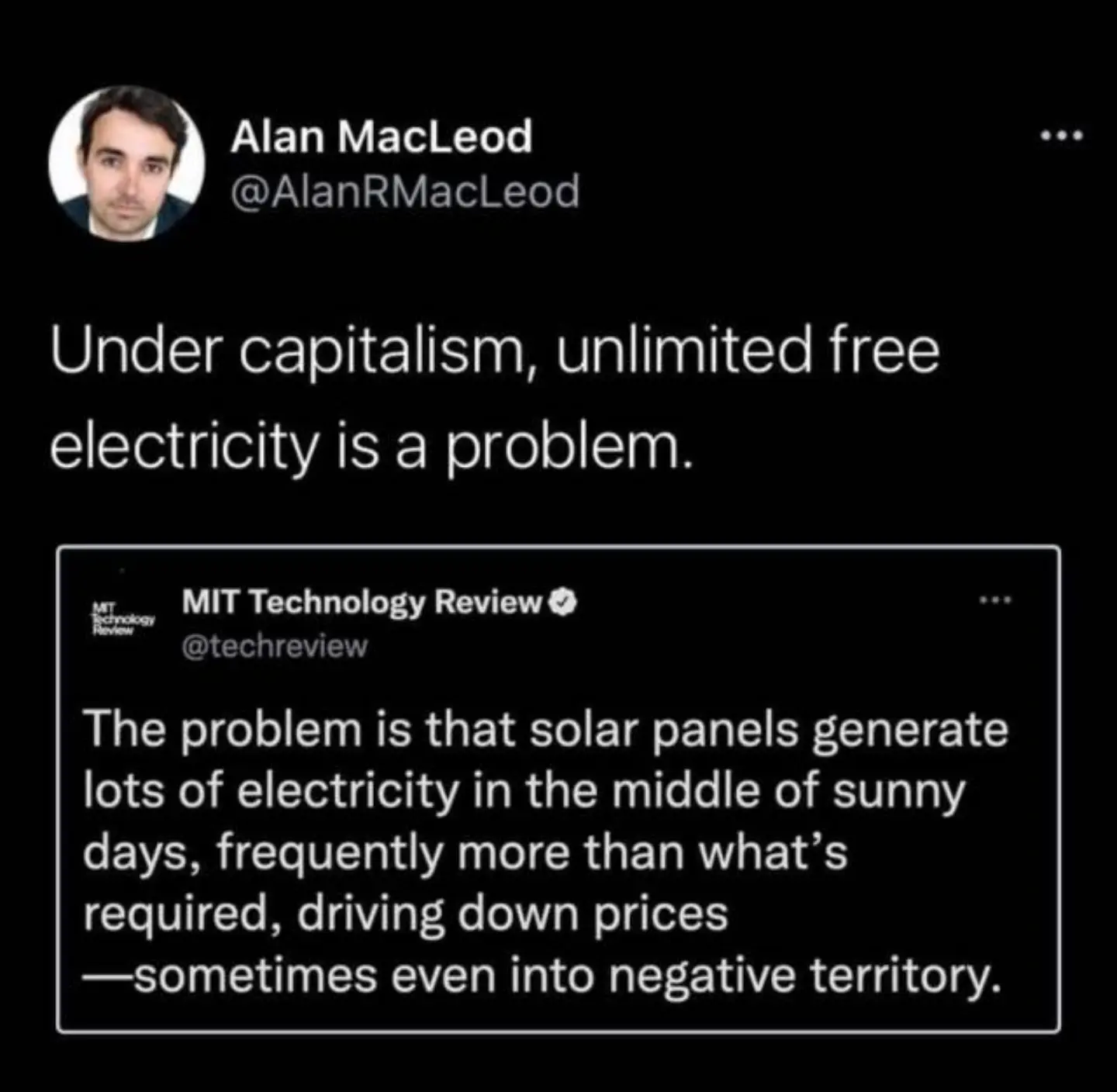this post was submitted on 09 Apr 2024
1626 points (95.9% liked)
Solarpunk
5393 readers
66 users here now
The space to discuss Solarpunk itself and Solarpunk related stuff that doesn't fit elsewhere.
Join our chat: Movim or XMPP client.
founded 2 years ago
MODERATORS
you are viewing a single comment's thread
view the rest of the comments
view the rest of the comments

Could they not just install a series of big "resistors" that can be switched on and off to burn off overproduction when necessary?
They can, and they do. They're typically considered safety devices since they can be damaged by having excess load dumped on them, and they either are dumb, in which case they don't act like an actual load the generator is expecting and can maybe cause damage to the generator, or they're smart and can mimic the type of load the grid would actually give, but now they're expensive and need maintenance and testing in excess of what the dumb one needs.
It's something you would need for off grid solar as well, with batteries that can only take so much charge, but at the power grid level it's a much bigger task because you're in the realm of "metal explodes" power, and exploding metal is bad.
i feel like you wouldn't need a dump load for solar, due to how it's setup. At best you just dont do anything, and worst you disconnect the panels entirely, that could be bad for the panels though idk.
It's different with typical generation because it's almost always converting mechanical energy into electrical energy. Which means if you load dump, suddenly the RPM of the turbine driving the generator, and likewise, the generator, is going to vastly speed up. Which given the fundamental mechanics of how those work, is going to fuck shit up. Dump loads exist as a really easy solution there.
But with solid state generation, i'm not sure it would really matter. Unless you're running a decentralized grid maybe.
The panels still generate power even if they're disconnected as long as they're in the sun.
In a home setup they'll probably just get warm, but if you're making a lot of current you'd want it to not do that.
I think a lot of home setups will switch to a water heater, since that's easy and also a potentially useful way to spend extra power.
I did some googling to try to get an idea of what happens if you just quickly disconnect a solar cell, and things seemed to indicate that it's the inverter that switches the DC to AC that likes it the least.
Regardless of the specific reason, I'm quite confident you need something in the mix to eat the excess power from an underutilized solar plant, because otherwise the electrical engineers who built them probably would have taken the seemingly obvious and easy way. :)
solar panels are typically pretty warm already. There are even panels that allow you to push water through them to keep them cool.
I wonder if that would be more effective than dumping resistive heating into water. I suppose it could still be bad for the panel, i would assume panel manufacturers would have data on this, but im too lazy to look it up because whatever site they have is probably a shitfest that i wouldn't be able to navigate easily.
Yeah, when I looked them up they recommended a dump load to mitigate fire risk, since however hot they get normally is the baseline for when all the energy they produce gets turned into heat on the panel as well.
Gotta send extra power somewhere, and better to send it someplace built for it than into the expensive thing that's not.
yeah that checks out i suppose. One of these days i will get around to looking into it out of curiosity.
Those still have to be connected to the grid. be maintained, cooled, controlled, all of which costs money.
Okay? So does the entire rest of the grid.